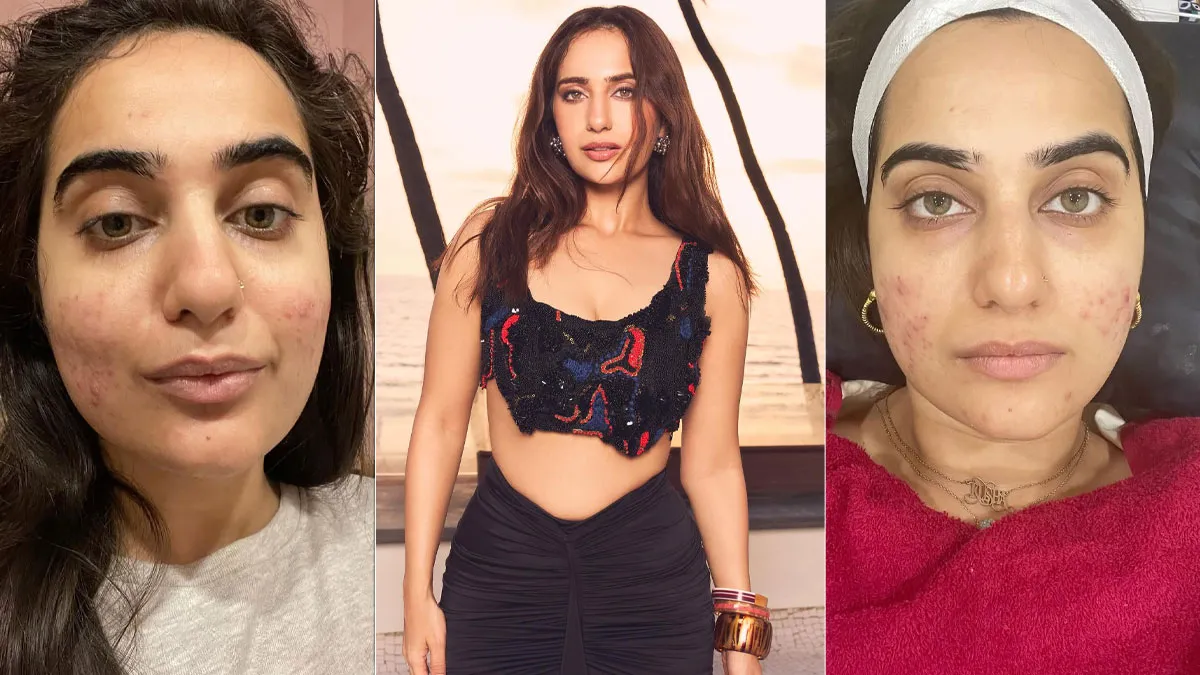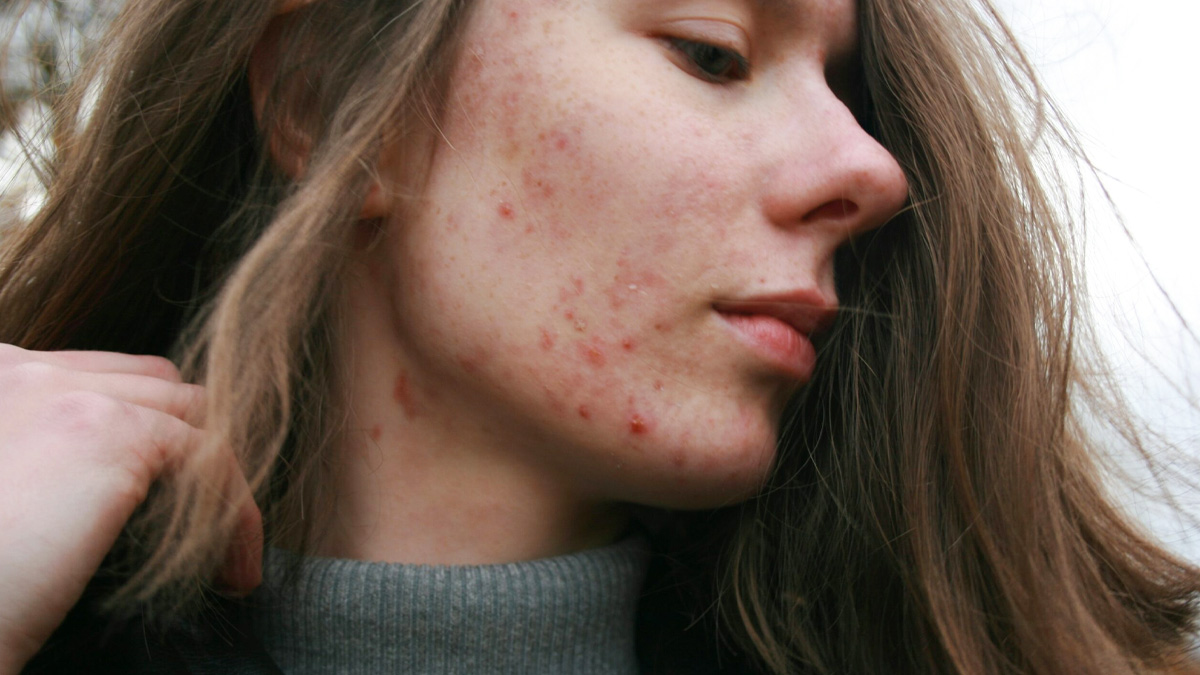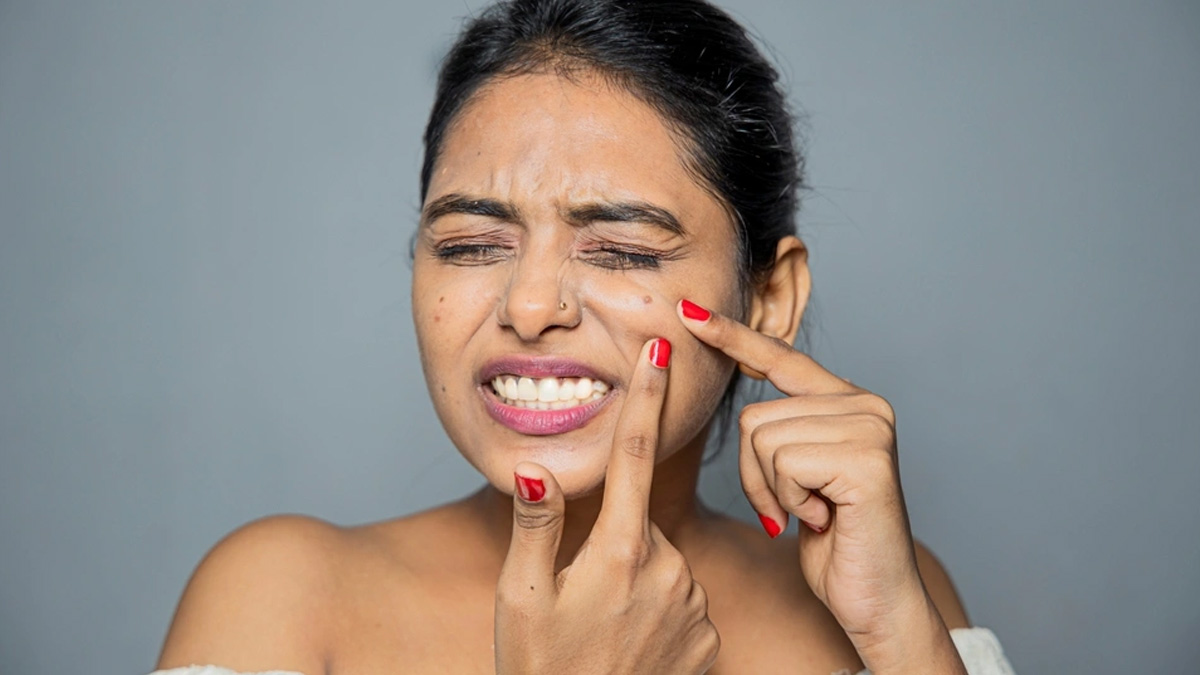
Acne problems can feel like a nightmare. Painful, inflamed breakouts can get so bad that even lying down feels unbearable. Kusha Kapila once shared how acne made her nights miserable. Her skin not only broke out, but bled at times, leaving her unable to rest on either side of her face. For someone constantly in front of a camera, it was more than a beauty issue, as it was a struggle that touched her health and confidence.
Table of Content:-
Kusha Kapila’s Struggle With Acne
View this post on Instagram
In a conversation with Soha Ali Khan, Kusha admitted that at 28–29, her face was “full of acne” and even bled at times. Sleeping became nearly impossible. She said she made lifestyle changes, improved her nutrition, cut sugar and junk food, and addressed her PCOD. Kusha said, "My biggest struggle was that my face was full of acne, painful and bleeding. I couldn’t sleep on any side of my face. I had to fix my nutrition, cut out junk and sugar, manage PCOD, and exercise regularly." She noted that exercise and diet alone weren’t magic fixes and the journey was long and often frustrating.
ALSO READ: Does Kusha Kapila’s DIY Rice Pack Really Tackle All Skin Concerns? Here’s What You Need To Know
Can Side Sleeping Make Acne Worse? Expert Explains![sleeping with acne 1 - 2025-10-01T154201.490]()
We asked Dr Sukansha Kulshrestha, Consultant Cosmetologist, Institute of Facial Aesthetic Medicine (IFAM), Lucknow, if side sleeping can worsen acne. According to her, sleeping on the side can create constant friction and pressure on one half of the face. If pillowcases aren’t washed regularly, bacteria, oil, and sweat can rub into the skin, irritating acne further.
But, she added, acne is not caused by sleeping alone. Hormones, stress, diet, and skincare all play a major role. Sleep position is just one piece of the puzzle. Her tips for acne-prone skin:
- Change pillow covers at least twice a week.
- Use cotton or silk fabrics that don’t trap heat.
- Try to sleep on your back when possible, or switch sides often.
- Focus on overall skin health with gentle cleansers and a balanced lifestyle.
What Research Says About Acne and Sleep
Studies suggest acne and poor sleep are connected. Research published in PubMed found that adults with more severe acne often reported poorer sleep quality, pointing to a two-way relationship between skin and rest. While sleep posture itself isn’t a direct cause, poor-quality sleep can worsen inflammation and breakouts, making bedtime routines important.
Simple Lifestyle Hacks From Kusha Kapila![acne tips 2 - 2025-10-01T154159.317]()
Kusha credits her clearer skin to the practical diet and lifestyle changes she made over time:
- Cutting out sugar and dairy, which can worsen acne
- Strength training and regular exercise to boost skin health and hormone balance
- Supporting gut health with fibre and probiotics
- Using natural home remedies like honey and turmeric for skin soothing
- Staying hydrated to flush toxins and maintain skin moisture
ALSO READ: Morning Saliva for Pimples: Myth or Medical Fact?
Conclusion
Acne is more than a skin issue as it affects sleep, confidence, and emotional health. Side sleeping can sometimes worsen acne through friction and bacteria exposure, but it’s rarely the root cause. Kusha Kapila’s story shows that recovery takes more than a cream or a single habit change. Clean sleep hygiene, hormonal care, balanced nutrition, and medical support together make the biggest difference.
Also watch this video
How we keep this article up to date:
We work with experts and keep a close eye on the latest in health and wellness. Whenever there is a new research or helpful information, we update our articles with accurate and useful advice.
Current Version
Oct 01, 2025 15:45 IST
Published By : Vivek Kumar


